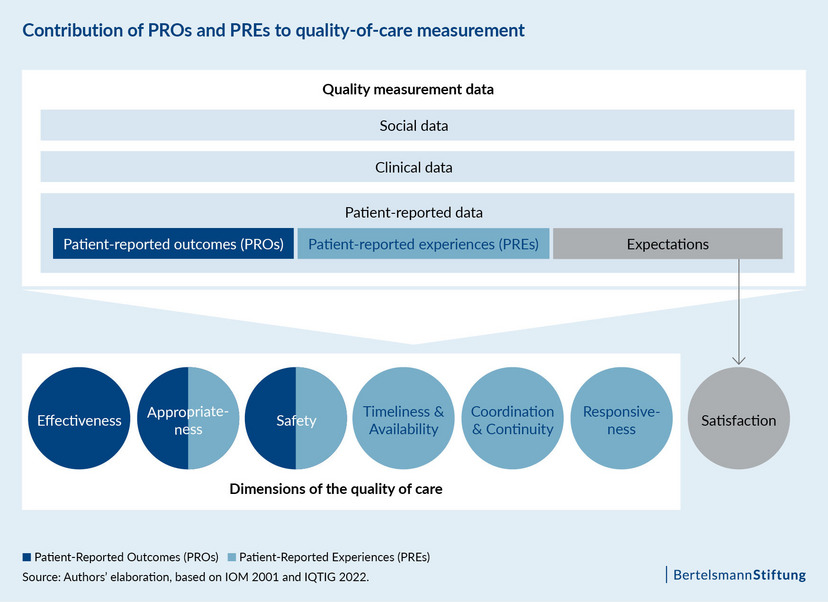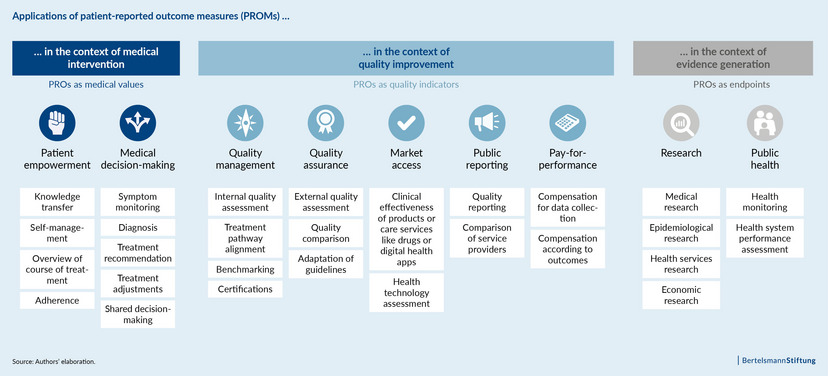The German Ethics Council identifies an orientation toward patient welfare and quality of life to be an imperative in health care. This includes providing care that enables patient self-determination, high-quality treatment, equal access and a needs-oriented allocation of facilities and resources. All healthcare structures and processes should be consistently oriented toward patient welfare and quality of life.
However, and contrary to what one might expect, there is no attempt in Germany to systematically examine patients’ feedback on their care experiences and outcomes. Several other countries have already made gains in this respect by collecting patient-reported outcomes digitally through systematic surveys and using this data to improve health care in general (see our “PROMS – an International Comparison” study).







